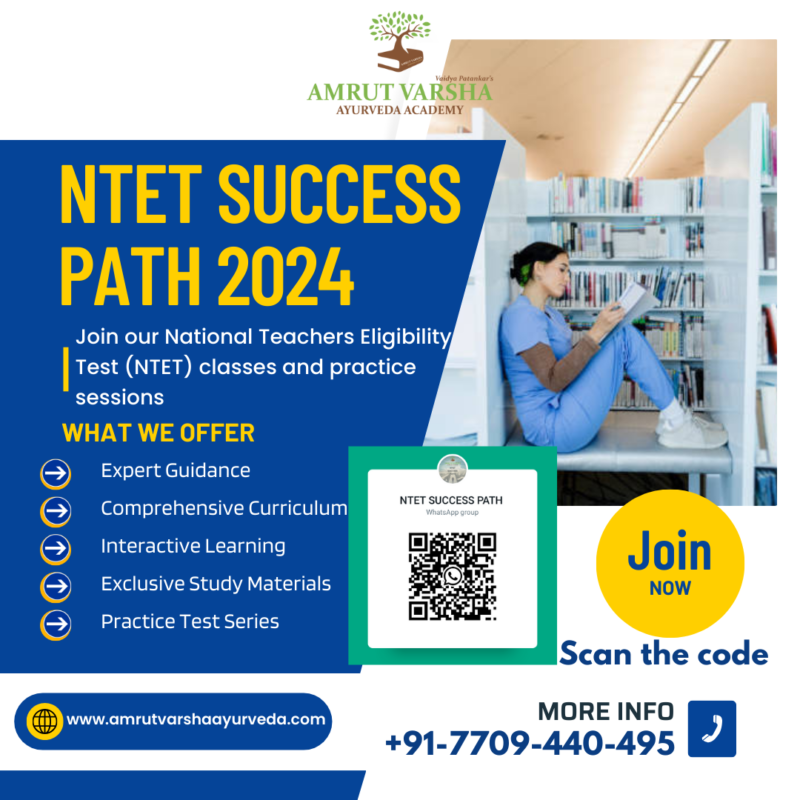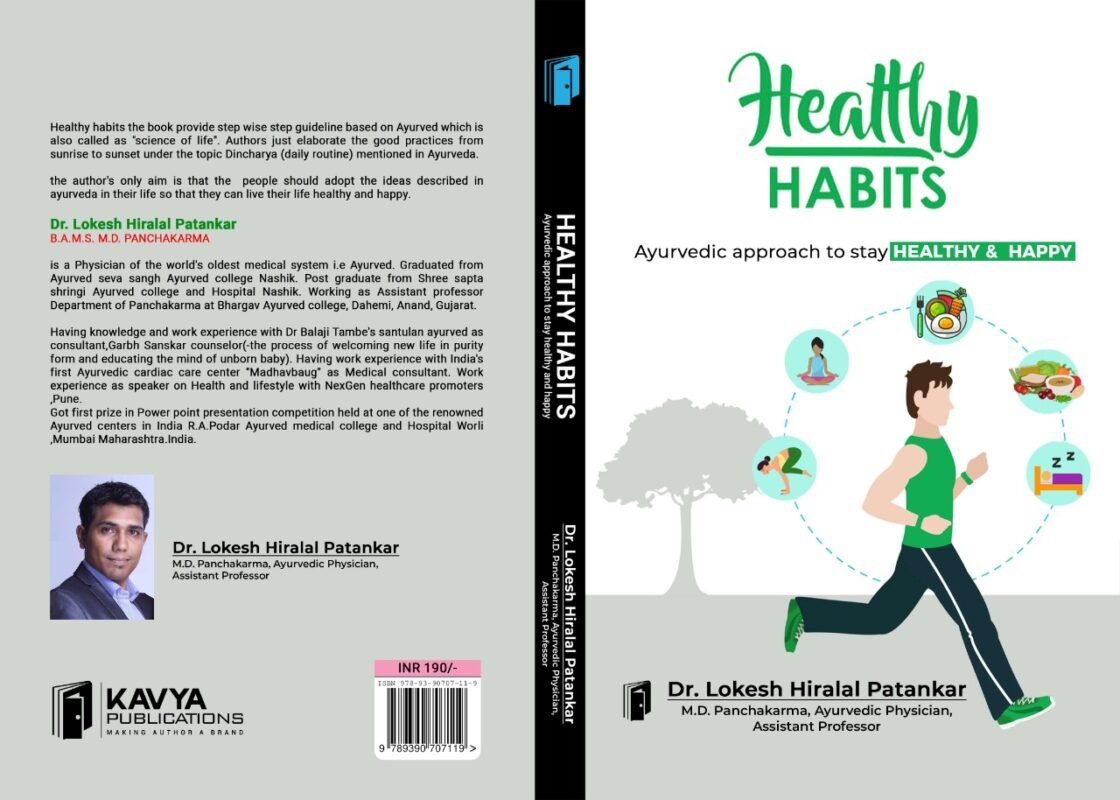Guidelines for conducting National Teachers’ Eligibility Test (NTET) by National Commission for Indian System of Medicine (NCISM).

National Commission for Indian System of Medicine (National Examinations for Indian System of Medicine) Regulations, 2023 vide notification dated 20” December 2023 laid down the minimum qualifications for a person to be eligible for appointment as Assistant Professor, Associate Professor and Professor in Indian System of Medicine Institutions. It had been inter alia provided that one of the essential qualifications for a person to be eligible for appointment as Assistant Professor, Associate Professor and Professor for first time in any of the colleges referred to in clause (1), (2) and (3) of section 17 of The National Commission For Indian System Of Medicine Act, 2020 is that he/she should qualify the National Teachers’ Eligibility Test (NTET) which will be conducted by NCISM designated authority in accordance with the Guideline9 framed by the NCISM.

Background and Rationale
- The National Commission for Indian System of Medicine Act, 2020 ensures access to quality and affordable medical education, availability of adequate and high-quality medical professionals of Indian System of Medicine. It is therefore necessary to ensure that persons recruited as Assistant Professor, Associate Professor and Professor possess the essential aptitude and ability to meet the challenges of teaching at the Ayurveda, Unani and Siddha Colleges.
- The eligible candidates as per Minimum Standards of Undergraduate Ayurveda Education Regulations, 2022; Minimum Standards of Undergraduate Unani Education Regulations, 2022; and Minimum Standards of Undergraduate Siddha Education Regulations, 2022; shall have to qualify NTET to become eligible to be appointed as Assistant Professor, Associate Professor and Professor in ISM Institutions.
- The rationale of NTET is to produce teachers with
- Ability to deal with diversified students;
- Ability to impart knowledge and expertise and exude mastery of the subject;
- Sets high expectation9 for all students and encourages them to achieve their goals
Who can be Eligible for he NCISM NTET
The following persons shall be eligible for appearing for NTET:
- Any person who desires to take up teaching profession for the first time as Assistant Professor, Associate Professor and Professor in Indian System of Medicine who is possessing the requisite qualifications as specified in the National Commission for Indian System of Medicine
- Minimum Standards of Undergraduate Ayurveda Education Regulations, 2022;
- Minimum Standards of Undergraduate Unani Education Regulations, 2022; and
- Minimum Standards of Undergraduate Siddha Education Regulations, 2022;
- The Post-graduate degree students completed thirty months of Post-graduate Degree program shall be eligible to appear this examination.
What is the Structure and Content of NTET ?
- The National Teachers’ Eligibility Test is to assess teaching aptitude, communication skills, classroom management, teaching, training and assessment technology, student psychology, andragogy, pedagogy or such other as may by specified by the commission from time to time.
Test Format
2. The NTET will be aptitude based test. based on CBT called Computer Based Test. click here to know about CBT
3. All questions will be Multiple Choice Questions ( MCQs),each carrying one mark, with four alternatives out of which one answer will be correct. There will be NO NEGETIVE marking.
4. The NTET will consist of 100 Multiple Choice Questions(MCQ’s) from the contents given in the table below.
5. Duration of the examination will be 120 Minutes.
6 The question paper will be in English and Hindi Language.
Join the WhatsApp’s Group to stay updated-
What is the syllabus for the exam ?
There are total eight topics on which the entrance exam is going to be conduct.
1. Teaching and Training
- Teaching: Concept, Objectives, Levels of teaching (Memory, Understanding and Reflective), Characteristics, and basic requirements.
- Teaching methods, new methods of teaching (approach).
- Utilization of Basic teaching and basic skills of teaching.
- Understanding Learner’s characteristics: Characteristics of adolescent and adult learners (Academic, Social, Emotional, and Cognitive), Individual deference’s
- Factors affecting teaching related to: Teacher, Learner, Support material, Instructional facilities, Learning environment and Institution,
- Methods of teaching in Institutions of higher learning: Teacher- centered vs. Learner-centered methods; Off-line vs. Online methods (Swayam, Swayamprabha, MOOCs etc.).
- Teaching Support System: Traditional, Modern, and ICT based.
- Methods of clinical teaching/ bedside teaching.
2. Communication
- Communication: Meaning, types, characteristics and purpose of
communication.
- Effective communication: Verbal and Non-verbal, Inter-Cultural and group Communications, Classroom communication.
- Barriers to effective communication.
- Mass-Media and Society.
3. Classroom Management
- Classroom Management
- Practical Classroom Management
- Psychology & Classroom Management
- Personal Approach to Classroom Management
- Ensuring Engagement & Motivation in the Classroom
- Routines & Technology in the Classroom
- Forming Positive Learning Environments.
- Disciplinary Problems.
- Management Strategies for Diverse Classrooms.
4. Assessment Methods and Educational Technology
- Administration of Evaluation Systems
- Elements of Evaluation
- Evaluation in choice Based Credit System in Higher education
- Computer-based Testing
- Consideration of Innovations in evaluation systems
- Advancement in educational technologies
- Information and Communication Technology (ICT): General abbreviations and terminology, Usage of Internet, intranet, E-mail, Audio and Video- conferencing
- ICT and Governance
5. Educational Psychology
- Educational psychology as a discipline
- Role of educational psychology – learning and teaching today
- Cognitive development: Brain and cognitive development,
- Guidelines to teaching: Piaget’s theory of cognitive development,
- Vygotsky’s Sociocultural perspective,
- Bronfenbrenner’s social context, Self and moral development
6. Andragogy in Education
- Meaning of Andragogy
- Need and importance of Andragogy
- Principles of Andragogy
- Characteristics of Adult Learners
- Competencies of Self-Directed Learning
7. Learning and Pedagogy
- Concepts of Pedagogy
- Meaning of Pedagogy
- Steps of Pedagogical Analysis
- Concepts of Critical Pedagogy
- Development of the concept of pedagogy
- Need and importance of Pedagogy
- Formulations of Learning Objectives, Teaching-Learning
8. Educational policies of Government of India
- National Education Policy – 2020
- Digital initiatives in higher education.
- National Credit Framework
- Academic Bank of Credits
- Competency/Outcome Based Curriculum
How much marks required for qualifying the NTET exam ?
A person who secure 50°/» or above in the NTET will be considered as NTET qualified.
What is the Applicability of exam?
Qualify NTET shall be mandatory requirement for appointment as Assistant Professor, Associate Professor and Professor in Institutions of Indian System of Medicine at entry level.
What is the Validity of exam?
NTET shall be conducted ordinarily in the month of May or before July of every year.
The Teachers’ eligibility so acquired shall be valid for a period of ten years from the date of qualifying National Teachers’ Eligibility Test for Indian System of Medicine and any person fails to join within a period of ten years or break of ten years or more in teaching profession, such persons shall have to qualify once again National Teachers’ Eligibility Test for Indian System of Medicine to join or re-join teaching profession.
How many Attempts I can give to qualify the exam.?
NTET may be appeared any number of times to obtain eligibility for teaching profession. No such limit of Attempts now. till further order.
Will I get any qualifying certificate of NTET exam ?Yes.
Yes, NTET certificate will be electronically generated and issued to the candidates. after successfully qualifying the exam with minimum of 50% marks.
- QUALIFIED PG DEGREE HOLDERS — will download their NTET Certificate after publication of NTET results from the date as specified by NCISM.
- PG STUDENTS WHO QUALIFIED NTET – will be able to download the NTET Certificate after publication of NTET results and after uploading the provisional/ degree certificate of Post-Graduate.
Embrace the Wisdom of Teaching carrier with Amrut Varsha Ayurveda Academy
Frequently asked questions (FAQs) for the National Teachers Eligibility Test (NTET) conducted by the National Commission for Indian System of Medicine (NCISM):
General FAQ
Q1: What is the National Teachers Eligibility Test (NTET)?
The NTET is a qualifying exam conducted by the National Commission for Indian System of Medicine (NCISM) to assess the eligibility of candidates aspiring to become teachers in Ayurvedic, Unani, Siddha, and Homeopathy institutions across India.
Q2: Who is eligible to apply for the NTET?
Candidates with a Master’s degree in Ayurveda, Unani, Siddha, or Homeopathy from a recognized university are eligible to apply. candidates must have a postgraduate degree in the relevant field / Subject and meet the specific eligibility criteria outlined by the NCISM.
Q3: How often is the NTET conducted?
The NTET is typically conducted once a year. However, the exact schedule may vary, so candidates should regularly check the official NCISM website for updates.
Q4: What is the mode of the NTET examination?
The NTET is conducted in an online mode (Computer Based Test). click here to know about Computer based Test
Q5: How can I apply for the NTET?
Candidates can apply for the NTET through the official NCISM website. The application process involves registering online, filling out the application form, uploading required documents, and paying the application fee.
Examination FAQs
Q6: What is the syllabus for the NTET?
The syllabus for the NTET includes topics related to the specific system of medicine (Ayurveda, Unani, Siddha, or Homeopathy), as well as teaching and research aptitude. Detailed syllabus information is available on the NCISM website.
click here to know about details syllabus.
Q7: What is the exam pattern for the NTET?
The NTET consists of multiple-choice questions (MCQs) divided into two sections: one focused on the respective medical system and the other on teaching and research aptitude. The exact number of questions and marks distribution can be found in the official notification.
Q8: Is there any negative marking in the NTET?
No, there is no any a negative marking for incorrect answers. However, candidates should refer to the specific exam guidelines for precise details.
Q9: How can I prepare for the NTET?
Candidates can prepare for the NTET by studying the prescribed syllabus, referring to standard textbooks, and practicing previous years’ question papers. Coaching classes and online resources can also be helpful.
Unlock Your Teaching Potential with Amrut Varsha Ayurveda Academy’s NTET SUCCESS PATH 2024 Crash Course!

Q10: What are the passing criteria for the NTET?
Generally, candidates need to score at least 50% marks to qualify,
Post-Examination FAQs
Q11: When will the NTET results be declared?
The NTET results are usually declared within a few weeks to few months or as soon as possible after the examination. Candidates can check their results on the official NCISM website using their registration details.
Q12: What happens after I qualify the NTET?
Candidates who qualify the NTET are eligible to apply for teaching positions in Ayurvedic, Unani, Siddha, and Homeopathy institutions. Qualifying the NTET is a mandatory requirement for appointment as a teacher in these institutions. or any AYUSH institution.
Q13: Is there a validity period for the NTET certificate?
Yes, the NTET certificate is typically valid for a period of Ten years from the date of issuance. Candidates can use this certificate to apply for teaching positions within this validity period.
Q14: Can I reappear for the NTET if I do not qualify?
Yes, candidates who do not qualify can reappear for the NTET in subsequent years. There is no restriction on the number of attempts till date.
Q15: Where can I find more information and updates about the NTET?
For more information and updates, candidates should regularly visit the official NCISM website or contact the NCISM helpdesk. or you can join our WhatsApp group to stay updated about NTET exam

